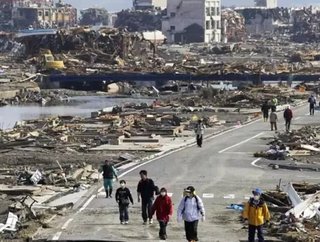Supply chain impact from Japan disaster measured

It was expected, but the financial impact of the earthquake and subsequent tsunami that struck Japan in March has finally been quantified.
Japan’s trade balance fell in April for the first time in three months, as infrastructure issues and supply chain problems caught up to the disaster-stricken nation.
There was some good news in Japan’s trade deficit, however. Bloomberg economists predicted a shortfall of over Y700 billion ($8.54 billion), but The Financial Times is reporting the actually deficit is Y463.7 billion ($5.7 billion).
Exports declined by 12.5 percent in April from a year earlier, while imports rose by 8.9 percent due to a higher petroleum and energy demand.
Global icons Toyota, Sony and Hitachi were among the hardest Japanese-based companies hit, while companies like Apple, based outside of Japan, are feeling the effects of supply shortages from crippled Japanese factories.
Toyota lost 170,000 units of production in March, with some analysts predicting the company could lose between 1-2 million vehicles because of the limited production. That would put Toyota’s stake as the world’s largest car manufacturer in jeopardy, with General Motors and Volkswagen ready to move up on the list.
SEE OTHER TOP SUPPLY CHAIN STORIES IN THE WDM CONTENT NETWORK
Supply Chain shortages catching up to Apple
How China is causing worldwide inflation
GM fit to handle supply chain disaster
Check out May’s issue of Supply Chain Digital!
According to Daiwa chief economist Mitsumaru Kumagai, the export decline is being caused by production bottlenecks rather than a staggering world economy, meaning export levels should return to normal as soon as production recovers.
Imports are expected to remain constant, however, as materials will be needed to rebuild Japan’s infrastructure. Energy demand will remain high, as the nation is still dealing with the loss of electricity generated by the effected nuclear power plants.






